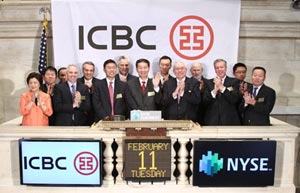Nation's CEOs more upbeat on growth than peers, survey says
By Hu Yuanyuan (China Daily) Updated: 2014-03-26 08:31The per capita net income of rural residents expanded 9.3 percent in real terms last year, and the income gap between urban and rural residents shrank.
These trends show that regional disparities are shrinking and opportunities for growth are emerging in the nation's vast hinterlands, according to Nally.
According to Nally, the shift in concerns reflects the tentative stabilization of the global economy, as well as the readjustment of the Chinese economy toward consumption-led growth and away from a reliance on investment and exports.
"CEOs will be looking to both drive efficiencies and contain costs, without losing sight of growth opportunities," he said.
The top economic and policy threats mentioned by Chinese CEOs are slow growth in developed economies, a slowdown in high-growth markets and excessive regulation.
As to business threats, bribery and corruption, rising labor costs in high-growth markets and high and volatile raw materials prices are the top three concerns.
Chinese CEOs' business focus is mostly domestic. Compared with their global peers, they are the least likely to be looking for new geographic markets for growth - 5 percent compared with the global average of 14 percent - the survey showed.
They were also the least likely to have completed a cross-border merger or acquisition year - 9 percent compared with 17 percent of CEOs globally.
The reason for a strong domestic focus, Nally said, is the ongoing reform and opening-up of the Chinese economy, which will bring both opportunity and risk.
|
 |
- NHTSA says finds no 'defect trend' in Tesla Model S sedans
- WTO rare earth ruling is unfair
- Amway says 2014 China sales may grow 8%
- President Xi in Europe: Forging deals, boosting business
- CNOOC releases 2013 sustainability report
- Local production by Chery Jaguar Land Rover this year
- Car lovers test their need for speed in BMW Mission 3
- China stocks close mixed Monday


















